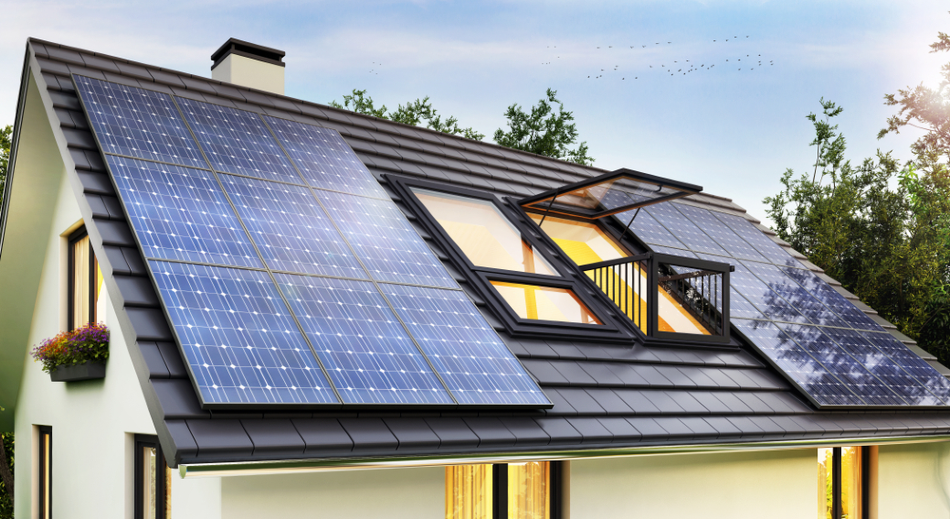
Image Credit: Slavun/Shutterstock.com
Solar panels are among the leading clean technologies being used to reduce our reliance on fossil fuels and to stem the harmful effects of climate change.
However, there is concern regarding the replacement cycle for these devices, which sometimes require energy-consuming fabrication processes for manufacture, as well as energy and resource costs such as rare earth material extraction and transportation.
A new study published in Joule argues that replacing solar panels in a modular fashion can minimize the carbon-emitting effects of replacement, and generate more power with increased efficiency and sustainability
Bucking a Trend for Solar Panel Longevity
Joel Jean and Vladimir Bulović from the Massachusetts Institute of Technology (MIT) and Michael Woodhouse from National Renewable Energy Laboratory in Colorado are arguing against the conventional wisdom in the solar power industry: that solar panels are required to operate for up to 30 years after installation to be economically and environmentally viable.
Click here to find out more about solar panel technology.
Jean, the paper’s lead author, is also the founder of Swift Solar – a startup company aiming to create a world where all energy is clean energy.
When you talk to people in the solar field, they say any new solar panel has to last 25 years. If someone comes up with a new technology with a 10-year lifetime, no one is going to look at it. That’s considered common knowledge in the field, and it’s kind of crippling.
Joel Jean, Massachusetts Institute of Technology (MIT)
Cost of Solar Panels Versus Systems
The economic case for a new approach is based on the fact that the majority of costs in solar power generation are now in the supporting system of electronics, structures and land. With advances in PV technology, the cost of the actual solar panels themselves (referred to in the paper as 'modules') has reduced dramatically.
This means that, provided all of the electronics are compatible, replacing PV modules can be a cost-effective way of increasing the efficiency and energy output of the system as a whole. The authors of the paper found this to be the case even when the associated costs of solar panel manufacture are taken into account.
Releasing Potential for New Photovoltaic Technology
The findings in this paper can help the solar industry adopt new PV technologies such as thin-film perovskite, for example, which previously faced limitations due to potential reductions in durability. This has meant that solar energy generators have been wary about adopting new technology for fear that the new panels would be unable to live up to the 20- or 30-year lifespan expected of them.
Many promising technologies never even got a start, because the bar is set too high.
Vladimir Bulović, Massachusetts Institute of Technology (MIT)
By replacing modules with newer technology, the efficiency of the entire system can be drastically improved. This helps to generate more electricity, which, in turn, pays for the renewed investment in replacement modules. Not only can module replacement be beneficial for individual companies and solar farms, but the researchers say it can also “accelerate the market introduction and decarbonization impact of emerging PV technologies.”
Not only this, but the arguments made in the paper can help to motivate researchers to develop new PV materials and modules by releasing them from the constraints of durability and lifespan requirements.
Thanks to this paradigm shift in the solar industry, researchers can focus on achieving maximum efficiency in solar power conversion, helping to reduce our overall reliance on fossil fuels.
References and Further Reading
Chandler, D.L. (2019). Study: Even short-lived solar panels can be economically viable. [online] MIT News. Available at: https://news.mit.edu/2019/short-lived-solar-panels-economic-0919.
Jean, J., Woodhouse, M. and Bulović, V. (2019). Accelerating Photovoltaic Market Entry with Module Replacement. Joule, 3(11), pp.2824–2841. https://doi.org/10.1016/j.joule.2019.08.012
Disclaimer: The views expressed here are those of the author expressed in their private capacity and do not necessarily represent the views of AZoM.com Limited T/A AZoNetwork the owner and operator of this website. This disclaimer forms part of the Terms and conditions of use of this website.